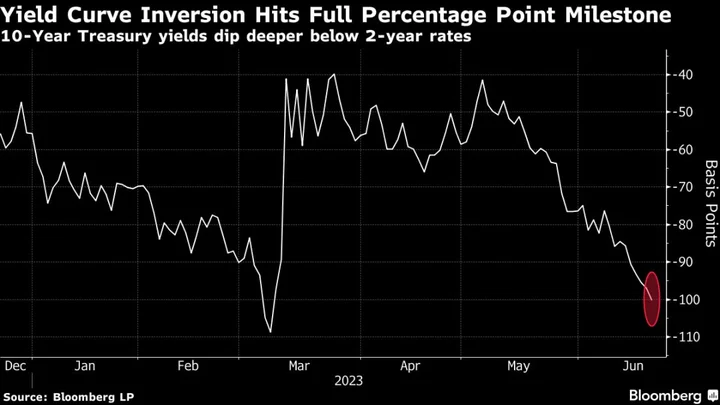The European Central Bank plans to substantially tighten how it monitors liquidity after several bank runs in the US and Switzerland heightened concerns about a risk that several regulators say hasn’t received sufficient attention.
The ECB proposes to ask lenders to report data on their liquidity reserves on a weekly basis, breaking out funding by maturity and type of client, people familiar with the matter said, asking not to be identified as the deliberations are private.
Many banks and their regulators were taken by surprise when clients of Credit Suisse and Silicon Valley Bank rapidly pulled deposits, prompting the ECB to consider such closer scrutiny, the people said. The move reflects a need for more information rather than acute concerns about the industry, they said.
This year’s bank failures have laid bare how quickly lenders can unravel if a sudden shift in sentiment propels clients to pull their deposits. European regulators are now questioning whether they have paid enough attention to liquidity risks and are tightening oversight in an effort to fill the perceived gaps in what they know about the banks in their jurisdiction.
Though the ECB started pushing banks to look more closely at liquidity in late 2021 as higher inflation pointed to rising funding costs, several senior officials told Bloomberg News that they still don’t have a complete picture.
“The European Banking Authority recently highlighted the need for supervisors to collect additional and more frequent liquidity information from banks,” a spokesperson for the ECB said in a response to Bloomberg. “While euro area banks enjoy comfortable liquidity positions, the ECB is now assessing how to follow up.”
The ECB’s focus on maturity and type of client stems from the events at Credit Suisse and SVB that showed large uninsured overnight deposits are particularly volatile. That’s because uninsured depositors are much more likely to lose their money in a bank collapse than insured ones, creating a higher propensity for them to pull out even when stress signals are still low, while the overnight nature of the deposits means they can be moved at any point.
The ECB may start later this year to ask for the data from lenders on a weekly basis, although it has yet to formally decide on the plan, the people said. Brokered deposits, which some regulators say pose a heightened flight risk, will probably also feature in wider data gathering efforts, they said.
The exercise would help the ECB decide whether to subject certain banks to higher liquidity requirements. Several senior regulators have publicly called to raise the bar for the so-called liquidity coverage ratio at overly-exposed firms.
The ECB has said liquidity will be a focus in its annual review of the risks that banks face and that higher requirements for the LCR are an option.
LCR measures a lender’s high quality liquid assets as a share of the outflows it would expect to see over 30 days of stress. All European banks are required to keep that ratio above 100% and bigger lenders tend to publish the figure on a quarterly basis.
In anticipation of challenges from the ECB, one senior banker told Bloomberg News that his firm has reviewed its assumptions about how sticky its deposits would be in times of stress, or if other banks offer higher interest rates. The banker, who didn’t want to be identified discussing internal matters, said he expects the ECB to also push for a more conservative calculation of the so-called survival period, an undisclosed metric intended to complement the LCR.
Although the considerations are at an early stage, regulators are also looking into the degree to which they can cap lenders’ reliance on certain sources of funding that are deemed volatile, the people said.









